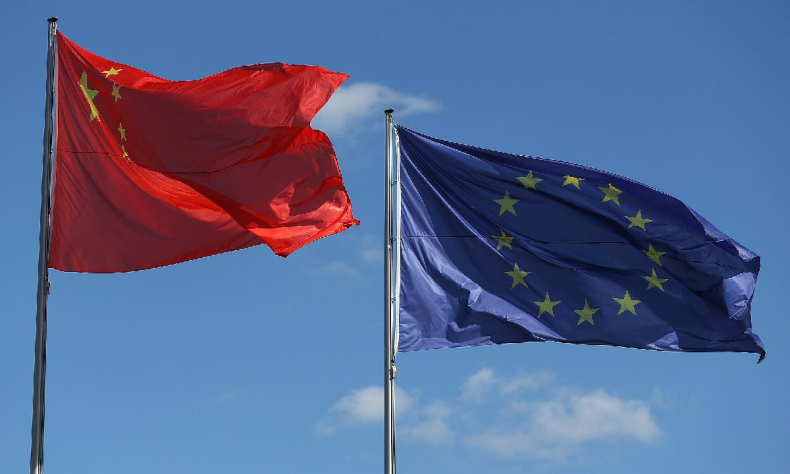China’s Countersanctions Hit the Right Ones

It is not China that needs to change its behaviour, but those countries that believe they can plunge the world into chaos under the guise of justice.
The EU sanctions against China adopted on March 22 did not come as a surprise to alert observers. The EU used its newly adopted sanctions mechanism, which had come into force in Brussels in December 2020 after years of lobbying by an American hedge fund billionaire named Bill Browder.
With the “Global Human Rights Sanctions Regime”, otherwise known as “Global Magnitsky Act”, the EU is thus following similar steps taken years earlier in the United States, Canada, the Baltic States, and the United Kingdom. Browder, a speculator wanted for tax evasion in Russia, had led the Obama administration and the U.S. Congress to pass a law in 2012 that could impose sanctions (including visa bans, account freezes) on people in any country in the world who the U.S. believes have committed so-called “human rights abuses”.
Browder’s original target was Russia, where, among other things, he conducted his shady financial dealings and was targeted by Russian authorities for embezzling tax payments. Browder then blamed the unexplained death of one of his associates, Sergei Magnitsky, on Russian security forces – a claim that later turned out to be pure fabrication, with too many contradictions to be true. When Browder then succeeded in getting the U.S. to sanction individuals allegedly involved in his case, that act was named after Browder’s late associate, Magnitsky.
The sanctions, which the EU has now imposed on individuals in China, Russia, North Korea, Eritrea and Myanmar, represent the first action under this “European Magnitsky Act”, passed December 7, 2020, for which Browder pressured authorities and governments in Europe for some 10 years, until even EU-Commission chief Ursula von der Leyen gave remarks signalling her strong support for it in November 2020. The EU’s External Relations Commissioner Josep Borrell declared that the law was a milestone.
The EU a unilateralist?
The motives behind the sanctions by the EU, U.S., U.K. and Canada are to undermine China’s sovereignty and weaken its position in the global community. Already after the demise of the Soviet Union, Anglo-American neoconservatives, who formed the Project for a New American Century, declared that they would never again tolerate the emergence of a hegemonic power in Asia and would instead cling to the supremacy of the “sole superpower” America.
The EU Commission under von der Leyen, Borrell et al. shows more and more clearly that it does not make an independent foreign policy in the interest of its member states but sees itself as another pillar of this Western unilateralism – code word: rules-based order. This attitude of the EU leadership is now regrettably manifesting itself in the first European sanctions against China in three decades, while European-Chinese economic relations had been steadily developing, with the result that China had overtaken the United States as Europe’s largest trading partner in 2020.
It remains to be seen whether the reciprocal investment agreement agreed to by the leaders of China, the EU and France at the end of last year will be smoothly finalized. China has become an economic lifeline for European industry amid the disruption caused by the Covid-19 pandemic. It would be more than reckless if the anti-China forces in the West would be able successfully torpedo and sink the agreement solely for the purpose of geopolitical power plays.

Hitting the right ones
The EU placed four individuals and one institution in China on its sanctions list for alleged links to human rights abuses in Xinjiang Uygur Autonomous Region following a unanimous decision by EU foreign ministers on March 22. Britain, Canada, and the United States immediately followed suit. China’s Foreign Ministry summoned the EU ambassador on the that day to lodge a formal protest. At the same time, countermeasures were announced, which promptly went into effect.
The Chinese government, in return, put 10 politicians and four organizations in Europe on the sanctions list that have seriously harmed China’s sovereignty and interests and maliciously spread lies and misinformation, the Chinese foreign ministry was quoted as saying. The 10 people affected include members of the European Parliament, including Germany’s Reinhard Bütikofer, who sits for the Green Party on the Committee on Foreign Affairs, Human Rights, Common Security and Defence Policy. With his constant insults and demands for sanctions against China, he has been trying to attract particular attention for years. But it also includes Adrian Zenz, who has risen to become one of the central “sources” of the U.S. military-industrial establishment. Zenz’s data manipulations, which were supposed to provide proof of an alleged genocide against the Uygurs in Xinjiang, have already been clearly exposed as a hoax by investigative journalist networks on several occasions.
“Experts” on disinformation
The Policy and Security Committee of the European Union, which consists of ambassadors of EU member states and high-ranking officials of the External Action Service, was also sanctioned, in addition to another high-ranking official EU-body, the European Parliament’s Subcommittee on Human Rights. China’s sanctions include prohibiting affected individuals and their family members to enter mainland China and the Hong Kong and Macao Special Administrative Regions, and prohibiting them from having any business dealings with China.
This hits particularly hard the Berlin-based Mercator Institute for China Studies (MERICS), one of the four sanctioned institutions, a China think tank funded by private millions whose members have been notable for their ubiquitous media commentary directed against the Chinese leadership. As violent subversion activities escalated in Hong Kong, MERICS significantly influenced public debate in Germany by systematically accusing China of “totalitarianism” and dismissing evidence of a foreign-directed colour revolution as a conspiracy. In a brief press release, MERICS now denied the accusations on the part of the Chinese government and promised to pursue its “mission with fact-based analysis.” Since MERICS has always worked very closely with the German government and produced numerous studies for ministries, the sanctions will certainly challenge MERICS’ quasi-monopoly on German opinion of China.
Chaos in the name of human rights
If one takes human rights, as laid down in the United Nations Universal Declaration after World War II, as a yardstick, one must give China the highest credit in view of the fact that it has lifted 850 million people out of extreme poverty in just a few decades and takes the common good much more seriously than others.
To attack China on human rights, especially on the basis of hearsay, rumours and falsified evidence, constitutes true hypocrisy. What happened to those states that the U.S. and Europe undermined and attacked in the name of humanitarian intervention and under the flag of human rights, from Afghanistan to Syria? They lie in ruins today with unspeakable human suffering.
China’s clear backlash against the recent coordinated sanctions of the so-called liberal democracies is more than justified because it exposes the double standards of the West and deservedly punishes those who have circulated some of the most vicious lies about China over a long period of time. It is not China that needs to change its behaviour, but those countries that believe they can plunge the world into chaos under the guise of justice.
The increasing pain and suffering caused by the West, however tragic, is clearly contrary to the overarching trend and interest of the world community, which is development, stability and peace. If the voices of the barbaric war profiteers and often psychopathic liars can be pushed back in favour of those who care about the real needs of progress in the world today, humanity has a chance to emerge from this dangerous crisis to fully enter a new era of cooperation rather than confrontation.
The author is is a web-journalist and a researcher at Schiller Institute in Germany.
 Facebook
Facebook
 Twitter
Twitter
 Linkedin
Linkedin
 Google +
Google +










